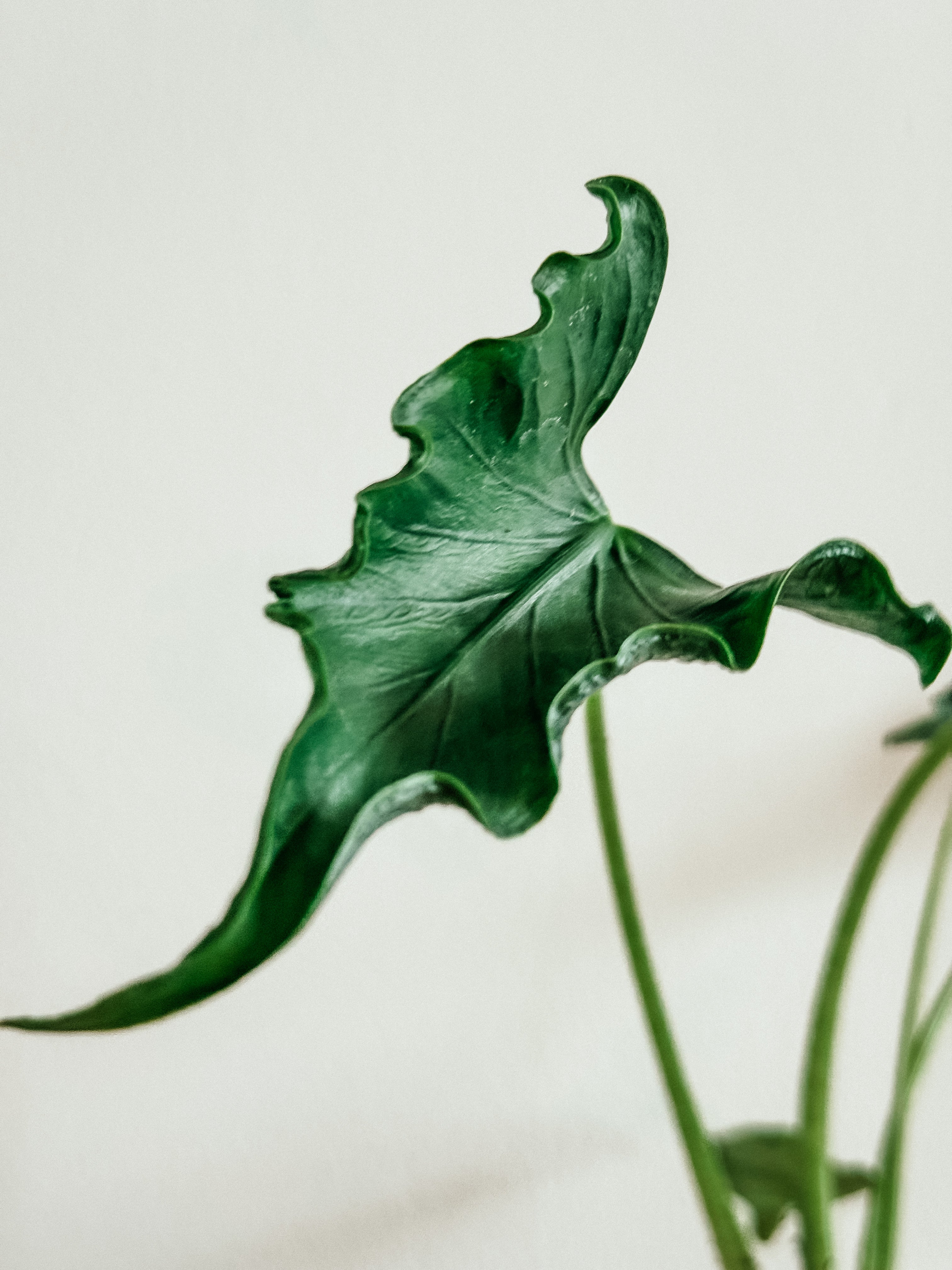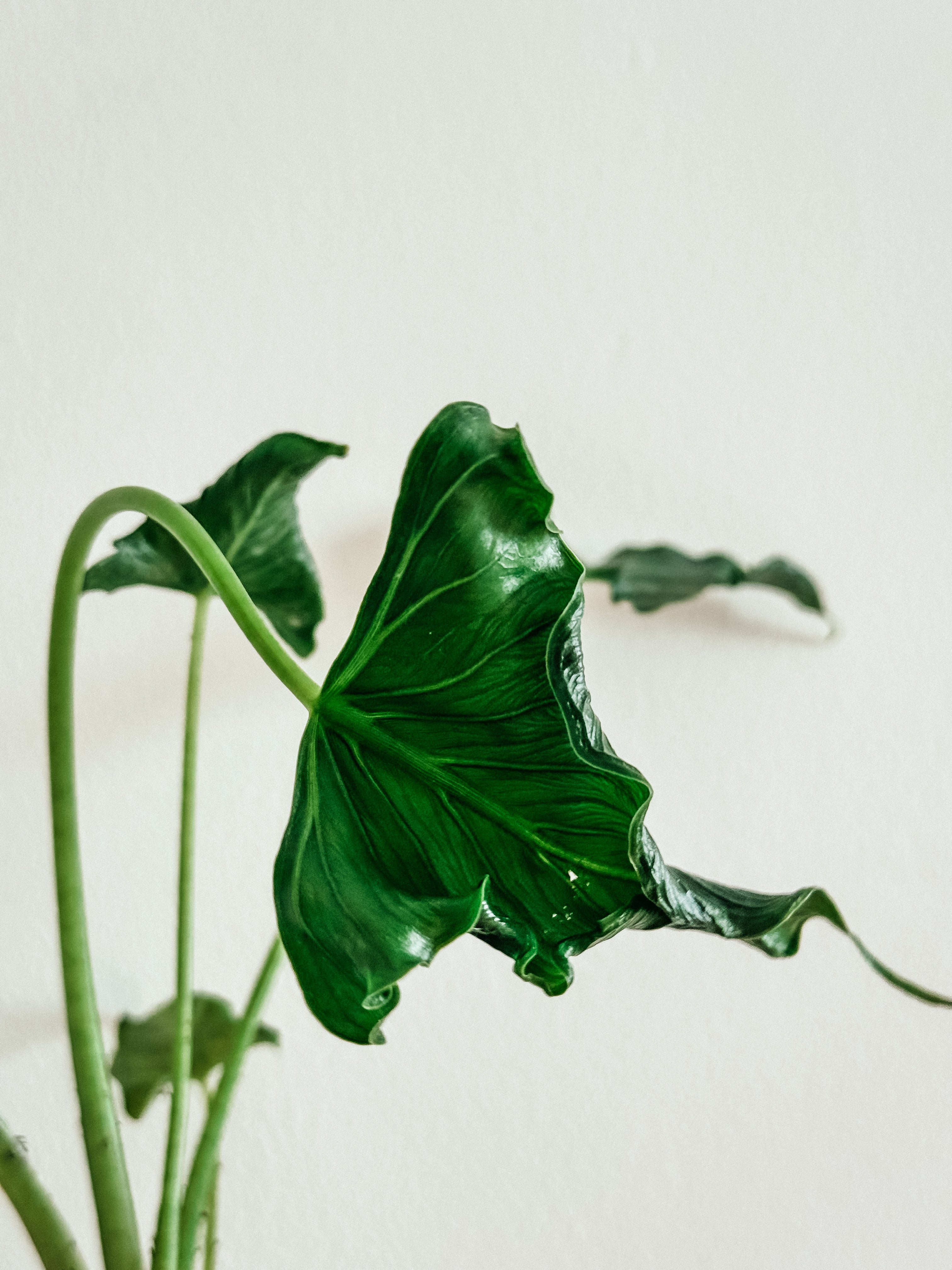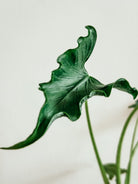Alocasia Teletubbies
Alocasia 'Teletubbies' is a rare and visually striking tropical plant, known for its thick, glossy leaves with unique rippling or wavy edges and a strong upright structure. Like other Alocasias, it requires specific care to thrive indoors or in tropical gardens. Here’s how to take care of it:
🌿 Care Guide
-
Light: Bright, indirect light
-
Water: Keep soil consistently moist, but never soggy
-
Humidity: High (60%+)
-
Temperature: Warm (65–85°F / 18–29°C)
-
Dormancy: May go dormant in cooler seasons
☀️ LIGHT
-
Bright, indirect light is best — think filtered sunlight or a spot near a bright window with sheer curtains.
-
Avoid direct sun, which can scorch the delicate leaves.
-
Insufficient light leads to leggy growth and dull color.
💧 WATERING
-
Keep soil evenly moist, but never waterlogged.
-
Water when the top 1–2 inches of soil feel dry.
-
Use room-temperature filtered water to avoid mineral buildup and leaf tip burn.
-
Reduce watering slightly in winter or if the plant goes into dormancy.
🌱 SOIL
-
Use a well-draining, airy mix, such as:
-
1 part peat or coco coir
-
1 part perlite or pumice
-
1 part orchid bark or chunky soil mix
-
-
Good drainage is key to avoid root rot.
🌡️ TEMPERATURE & HUMIDITY
-
Temperature: Prefers 65–85°F (18–29°C)
-
Humidity: Needs high humidity (60%+).
-
Use a humidifier, pebble tray, or group with other plants.
-
Brown edges or crispy tips often mean low humidity.
-
🧪 FERTILIZING
-
Fertilize every 4–6 weeks during active growth (spring/summer).
-
Use a balanced, diluted liquid fertilizer (e.g., 20-20-20 at half strength).
-
No need to fertilize in winter if the plant slows or goes dormant.
🍂 DORMANCY
-
Alocasia triangularis may go dormant in cooler climates.
-
Leaves may yellow and drop — don’t panic.
-
Water less, don’t fertilize, and resume care in spring when new growth appears.
🌱 PROPAGATION
-
Best propagated by division during repotting.
-
Carefully separate rhizomes or offsets, ensuring each has roots attached.
🪴 REPOTTING
-
Repot every 1–2 years, ideally in spring.
-
Choose a pot 1–2 inches wider with good drainage.










